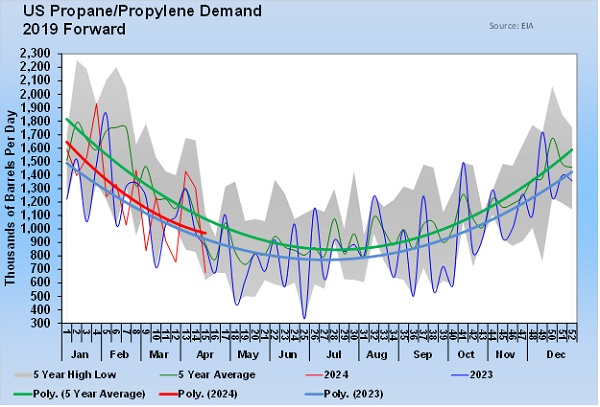Is someone else filling your tanks?
Mike Green noticed several customers who were regulars hadn’t purchased propane from him in about two years. Clearly something was off, so Green started to investigate.
His company, Green’s Propane of Smith Station, Ala., checked the tanks of the customers in question, and it found some that were 60 to 70 percent full. When Green’s Propane returned and checked those same tanks a second time, it found propane had been added to some of them.
“Our issue was other companies were servicing our tanks,” Green says.
Green learned that a national propane retailer, which had previously serviced his territory yet hadn’t pressed too much into the area, had ramped up its marketing efforts with a postcard campaign offering better fuel prices. Several Green’s Propane customers took advantage of the campaign, prompting the need for a quick solution to protect Green’s business interests.
Green found a solution of sorts in the fill valve lock.
“It does two things,” he says. “The other [retailer] can’t get in there, and if somebody steals the tank they couldn’t get the lock off.”
Green’s Propane has been using fill valve locks since Lock America first introduced them. Green initially ordered about 200 fill valve locks. Now, he estimates his company owns about 2,000 of them, and about half of his tanks have a fill valve lock.
“We had one customer asking us why we put this lock on his tank,” Green says. “I explained it to him. He said the other company was running a special and he could get the gas for cheaper. I said I can talk to you about meeting that price, but they can’t put the gas in our tank.”
It’s not that Green doesn’t trust particular customers, he says. In his case, the other propane retailer is the untrustworthy party.
“Other companies should be in the business of doing things right,” Green says. “The same one would be pitching a fit if I had serviced their tanks.”
Green primarily puts fill valve locks on his leased tanks. Not every leased tank gets one, he says, but smaller tanks that don’t consume propane quickly typically do. Fill valve locks are also common on will-call customer tanks.
A retailer concurs
Mark Delehanty, currently the owner of Independence Propane of Green Lane, Pa., and the president of the Pennsylvania Propane Gas Association (PAPGA), faced the same problem as Green while employed by another retailer several years ago. Delehanty says competitors were filling his previous employer’s tanks, but the employer got the state of Pennsylvania to intervene.
“The inspectors went in and questioned it a little bit,” Delehanty says. “It’s written in Pennsylvania’s gas code that it’s illegal to fill up somebody else’s tank. We went to the state inspector and said, ‘Here’s documentation that we own this tank and documentation that they, the other company, went and filled it.’
“The inspector went in and said, ‘Look, you guys have to knock this off.’ It seems like [the problem] slowed down a little bit.”
Delehanty says a problem remains in that no formal procedure exists to document a tank’s proof of ownership. If retailers are asked to fill tanks that are not theirs, some will have customers sign a document that says something to this effect: that the customer has informed the retailer that the tank being serviced is the customer’s property. Other retailers will ask customers to provide proof of ownership, or a receipt that shows the tank was indeed purchased.
Most customers are honest, Delehanty says, but another problem arises in that many customers do not realize the tank they’ve had for years is not their property.
“That’s the other problem,” Delehanty says. “People will move into a new house, and the tank will be leased from John’s Propane, for example. You move in and you never had propane, so you don’t know the routine and that the gas company owns the tank.”
The sad truth is that many tanks lack proof of ownership, Delehanty says. Delehanty was reminded of this when he worked for Heritage Propane, which at one time acquired a family-owned retailer that lacked proof of ownership on all of its tanks.
“If you were a small propane marketer in the old days and ‘Fred’ calls up because he got his wife a gas range, the marketer would charge $100, and that was the end of it,” Delehanty says. “There was no work order or documentation – nothing. For those small, old-time, this-is-the-way-we-always-did-it marketers, this is always a challenge. I can guarantee you there are many tanks out there with no proof [of ownership].”
To remove any doubt, Joe Rose, the president and CEO of the Propane Gas Association of New England, advises retailers to secure documentation and fix their company’s name on their tanks.
“A good operator should have good documentation signed by the customer,” Rose says. “Get some sort of a tag affixed to the tank that says, ‘Property of XYZ Propane.’ Otherwise, you don’t have too much of a leg to stand on.”
















